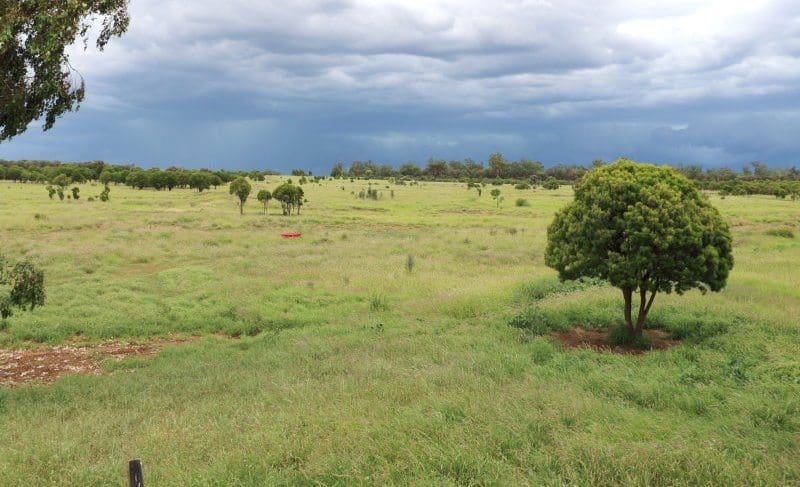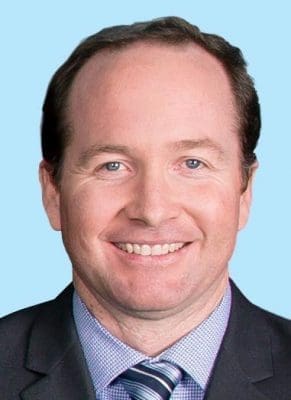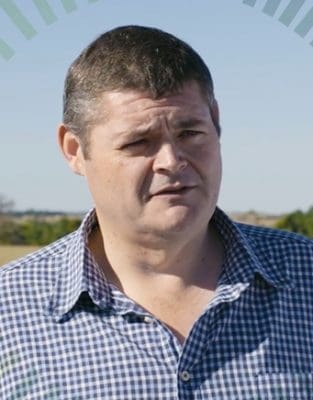
Charleville’s 78,000ha Oak Park aggregation is being used as a calf factory for Chinese owner, AAAW’s Hunter Wagyu operations. It’s one of the rare examples of a grazing property sale to a Chinese buyer in the past 12 to 18 months.
NOT so long ago, China appeared to have an insatiable appetite for Australian cattle properties, with numerous Chinese companies investing hundreds of millions of dollars in large-scale and showcase Australian beef operations.
But the tide has dramatically turned, with the last significant Chinese purchase occurring in October 2017, when the 78,117ha Charleville property Oak Park Aggregation, in south-west Queensland, sold to Australia Aulong Auniu Wang (the Australian subsidiary of Chinese retailing giant, Dashang Group) for a reported $13.5m to $15.5m (see image above). Click here to view earlier story on the sale.
While there has been some Chinese inquiry, most investors have ‘failed to perform’ and buying activity has now virtually ceased.
According to a report compiled jointly by KPMG and the University of Sydney Business School, new Chinese investment in Australia (total investment in all markets, not just rural property) declined by 11 percent in 2017, from $15.4 billion to $13.3 billion – compared to 35pc drop in the United States, 17pc in the European Union and 9pc in Canada overt the same period.
Published last month, the report, “China – Demystifying Chinese Investment in Australia,” blames the decline on tightened Chinese capital outflow and deal approval regulations.
Apart from the China-based consortium deal to acquire Real Pet Food (an animal food business with headquarters in NSW and manufacturing operations in Qld), the KPMG and Sydney University researchers found other recent Chinese food and agribusiness deals were small and focused on cattle properties and dairy projects.
In fact, the sector recorded only eight deals in 2017 with a total value of $1.1b, down eight percent on the previous year.
The report claimed that allegations about Chinese influence and increasing diplomatic tensions between China and Australia had given Chinese companies the impression that they were less welcome to invest in Australia.
How much do the Chinese own?
In its 2016-17 annual report, the Foreign Investment Review Board’s Register of Foreign Ownership of Agricultural Land found that following the purchase of the S. Kidman & Co minor shareholding in 2016, Chinese companies owned about 2.5 percent of Australia’s agricultural land.
This is second only to the United Kingdom with 2.6 percent, and ahead of the United States with 0.7 percent of agricultural land. All three figures are somewhat distorted, as they classified minority shareholdings, like those held in Kidman and NAPCo by overseas interests, as ‘ownership.’ Click here to view earlier story.
Are agents seeing any signs of Chinese interest?

Andy Gray
Eighteen months ago, Andy Gray from Territory Rural was regularly fielding property inquiry from China.
At the time he told Beef Central, “Chinese interest in Northern Territory cattle stations has not waned, but the due diligence process for overseas investors is lengthy and comprehensive. There are also restrictions on taking money out of China, but it is easier for existing businesses showing returns and cash flows.”
This week, Mr Gray said he was not currently dealing with any Chinese investors.
“There is still plenty of foreign inquiry, but it’s mostly from the United States and Vietnam. The rest are Australians. I don’t think there is a lack of interest from the Chinese, it is just a lack of activity at present. The phone might ring tomorrow,” he said.
Sue Brosnan from Tanami Property NT hasn’t fielded any inquiry from China for a similar period of time.
“It has gone quiet, and I suspect it has to do with how the Federal Government is dealing with foreign investment transactions and how the FIRB is reviewing them. The last time I was dealing with a serious Chinese investor, they felt they weren’t being welcomed in Australia,” she said.
Ms Brosnan said the main interest was coming from other foreign countries and domestics.
“It is fairly evenly divided. Vietnam, Israel and Saudi Arabia are seeking northern land assets for food production, and there is some interest from South Africa, but nothing serious.”

Sue Brosnan
Ben Forrest from Colliers International recently handled the sale of the 52,245ha beef and carbon cash-flowing asset Nimboy, in south-west Queensland.
In a relatively modest sale, it was sold for $2.7m bare to a China-based logistics businessman who reportedly has his sights set on purchasing additional Australian land.
Aside from that transaction, Mr Forrest said there had been very little Chinese activity in the Queensland rural property market.

Ben Forrest
“There has only been one Chinese inquiry on the historic Clifton Hills Station (one of the largest rural properties in the world) which is currently being offered via an expressions of interest campaign. It is a different story on the commercial front.”
The Chinese may be absent from Australian grazing purchases, but Mr Forrest doesn’t believe it is a trend.
“It is just a moment in time. There is plenty of inquiry from other parts of the world. Europe and the United States are strong and on certain northern assets, there is interest from Vietnam.”

John Burke
Brisbane-based rural property consultant for Elders Rural Real Estate QLD/NT, John Burke, agrees that Chinese interest has slowed and can’t remember when he last sold a property to anyone from China.
“The Chinese had a rush over three years and now it has quietened off. Perhaps they will repeat their run in a couple of years. But presently, the rural property market is dominated by locals – established industry players looking to expand – and some Canadians.”
Mr Burke doesn’t believe new Federal Government regulations have dampened interest.
“I don’t think they have curtailed sales. Foreign buyers understand the new rules and abide by them. They are not insurmountable.”
Rural Sales Australia sole operator Patrick Hurley, who sold Oak Park Aggregation in October last year, said inquiry from China in his region had been extremely quiet.
“It didn’t just fade away – interest dropped off sharply and I can’t pinpoint a reason why. However, interest from other parts of the world, including the US, North America and Europe, has picked up pace.”

Danny Thomas
For years now, CBRE regional director of agribusiness Danny Thomas has only ever taken the view that China is just a part of the beef property market.
“China has never been a significant component. There are many investors looking at asset groups, but if you look at the volumes of deals completed, they were just part of the market. They weren’t driving it.”
“Anytime the Chinese did buy something they received an amplified amount of interest, because they were new money, and everybody was particularly interested,” he said.
When regulatory changes restricting capital outflows were enforced in China, Mr Thomas conceded Chinese investors backed off.
“Even legitimate Chinese corporations with a track record of purchasing agricultural properties in Australia were finding it difficult to mobilise capital out of mainland China. Large state-owned enterprises (SOEs) needed strong justification for taking money out of the country. Before the introduction of the new rules, it was a bit of a free-for-all.”
Mr Thomas said the Chinese would likely return to the market some time.
“It will be the corporates and the higher-value end companies looking to do something on the verticals and supply chains. It won’t be individual high-net worths,” he said.
Mr Thomas said most of the current inquiry is coming from domestics.
“There is still plenty of interest from North America and Europe, but the bulk of the parties who are winning at present are the domestics.”
